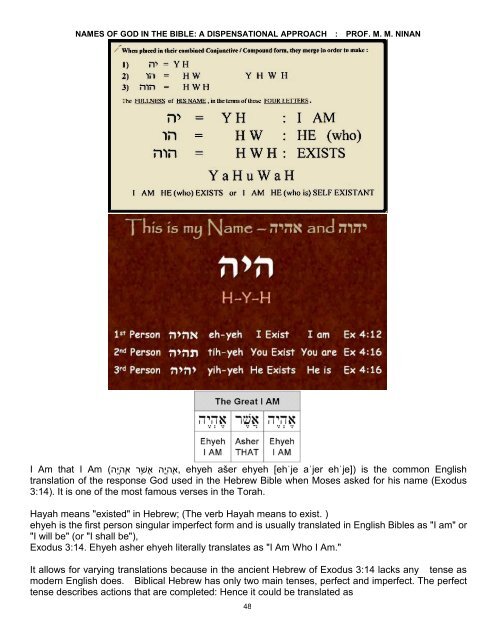THE NAMES OF GOD
Create successful ePaper yourself
Turn your PDF publications into a flip-book with our unique Google optimized e-Paper software.
<strong>NAMES</strong> <strong>OF</strong> <strong>GOD</strong> IN <strong>THE</strong> BIBLE: A DISPENSATIONAL APPROACH : PR<strong>OF</strong>. M. M. NINAN<br />
I Am that I Am אֶהְיֶה אֲשֶׁר אֶהְיֶה) , ehyeh ašer ehyeh [ehˈje aˈjer ehˈje]) is the common English<br />
translation of the response God used in the Hebrew Bible when Moses asked for his name (Exodus<br />
3:14). It is one of the most famous verses in the Torah.<br />
Hayah means "existed" in Hebrew; (The verb Hayah means to exist. )<br />
ehyeh is the first person singular imperfect form and is usually translated in English Bibles as "I am" or<br />
"I will be" (or "I shall be"),<br />
Exodus 3:14. Ehyeh asher ehyeh literally translates as "I Am Who I Am."<br />
It allows for varying translations because in the ancient Hebrew of Exodus 3:14 lacks any tense as<br />
modern English does. Biblical Hebrew has only two main tenses, perfect and imperfect. The perfect<br />
tense describes actions that are completed: Hence it could be translated as<br />
48


















